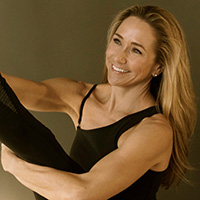By Karen Ellis. On a recent trip to London, I relied on the infamous tube to get around. But the last day, I opted not to haul my heavy suitcase onto the tube and instead hailed a taxi to the Eurostar station. En route, a conversation with my gregarious driver ensued about how one becomes a cab driver in London. The answer – via an ‘examination’ called The London Knowledge.
If one chooses to become a cabbie in London your first task is to learn all the streets, monuments, statues and places of interest within a six mile radius of Charring Cross Station. By learn, I mean memorize. Next, figure out the shortest, quickest routes from point A to point B. This process takes approximately two to four years, all the while you take tests, written and oral to ensure you are up to the challenge, because navigation devices are not permitted. The failure and drop out rate is huge.
Naturally, since all roads lead back to Pilates in some way for me, this made me think about the process of becoming a Pilates Teacher. If it takes two to four years to know the streets of London, how long might it take to comprehend Pilates as is relates to the human body? Further, to read movement and use Pilates to optimally progress a body from its relative point A to B – and places of interest along the way – (given that the A to B in a client might be complex, multi layered, not to mention changeable). And do this really well? I submit it takes a bloody long time.
Here’s the intriguing part. A researcher named Eleanor Maguire and her colleague Katherine Woollett, showed that the hippocampus, a region in the core of the brain, that had in animal studies been linked to spatial awareness and memory, not only showed London taxi drivers have an uncommonly large hippocampus, but Maguire showed that a cab driver’s hippocampus is at it’s peak when they first design a route. Additionally, among different groups of professions in the study, only the London cab drivers, with their superlative spatial memories, had enlarged hippocampi.
What the study powerfully suggested was that the concentrated training for London cabbies was the reason for the transformations in the drivers’ brains. So the combination of memorized material put to navigation task resulted in brain change. And it might be worth mentioning that the research also found that when the cab drivers retired, their hippocampus shrunk to a smaller size. You know the adage, ‘use it or lose it’.
So I wonder if it’s a stretch to consider that while you are teaching Pilates you are enlarging your hippocampus; that charting out the best course for your clients’ body could benefit the teacher as much as the student? If so, utilizing both memory and imagination would be crucial. A profound ‘result or destination’ – we might more aptly call it a journey – for your client could positively influence your brain development, too. For the client to remember exercises, order and yes, even springs – while focusing on form and execution undoubtedly stimulates brain activity. It was clear (while not for the same scientific reasons), Joe Pilates emphatically believed Contrology developed the brain. He says in his book Return to Life (page 10), “Contrology [Pilates]..reawakens thousands and thousands of dormant brain cells, thus activating new areas and stimulating further the functioning of the mind…More significantly, it actually develops more brains cells.”
So GPS away, my fellow instructors and practitioners, it will fuel your spirit and likely the very core of your brain. And one more thing, the next time someone is trying to decide between any old class and Pilates, tell them Pilates will make them smarter! <Go nerds>
Exercise, stress and hippocampus
Karen Ellis is the curator of Pilates Nerd. She draws inspiration from nearly everything, especially people. She has been so deeply impacted by her fellow colleagues and their enthusiasm for all things Pilates, that she felt it was a “movement” worthy of repute: hence Pilates Nerd™ was born! You’ll probably run into Karen at a workshop, a class or a conference that relates in some way to…you guessed it – Pilates!
I have no special talent. I am only passionately curious.
– Einstein
